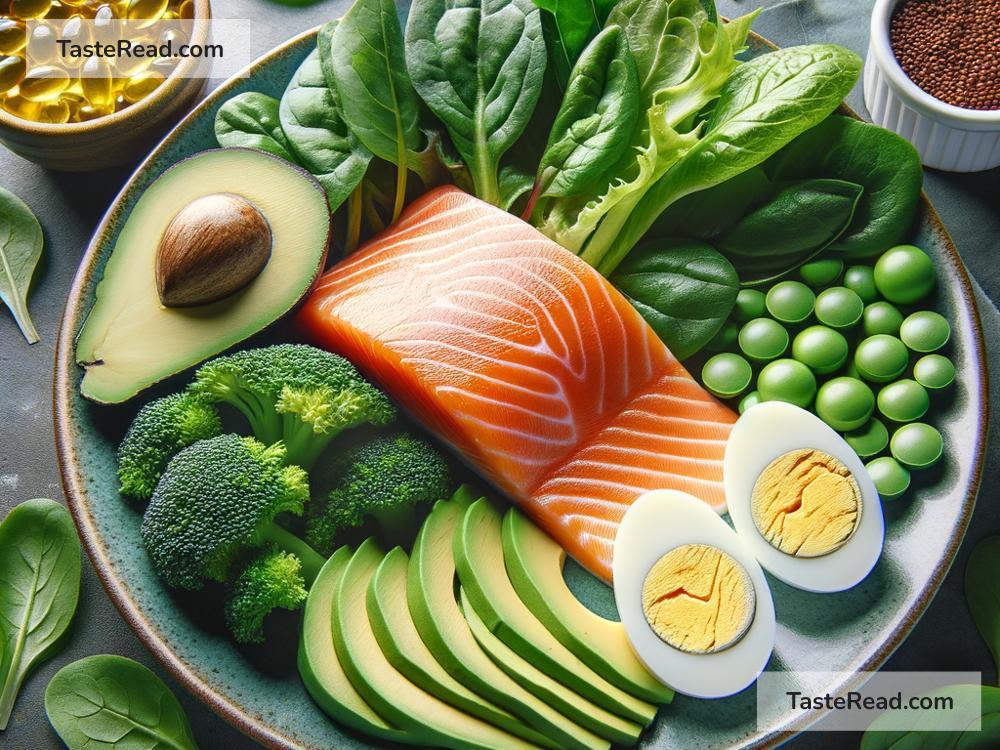The Role of Vitamin B6 in Metabolic Health
When we talk about staying healthy and having energy to do the things we love, our metabolism plays a big role. Metabolism is like your body’s engine—it processes food into energy and keeps all your systems running smoothly. One nutrient that helps power this engine is Vitamin B6. While it might not get as much attention as other vitamins like Vitamin C or D, it’s incredibly important for keeping your body functioning well, especially when it comes to your metabolism.
Let’s dive into what Vitamin B6 does, where we can find it, and why your body needs it for a healthy metabolic system.
What Is Vitamin B6?
Vitamin B6, also known as pyridoxine, is one of eight B vitamins. These vitamins work together to help your body use food as fuel for energy. B6 is water-soluble, which means it dissolves in water and isn’t stored in your body for long periods. Because of this, you need to get it regularly from your diet.
There’s a lot Vitamin B6 does for your health, but one of its main roles is supporting your metabolism. Metabolism isn’t just about burning calories—it also includes how your body processes nutrients, builds tissues, and removes waste. Vitamin B6 is like a manager overseeing various parts of these processes.
How Does Vitamin B6 Support Metabolic Health?
1. Breaking Down Nutrients
The food you eat contains three main nutrients: carbohydrates, proteins, and fats. Your body needs these to create energy and build new cells. Vitamin B6 plays a key part in breaking down these nutrients into usable forms.
For example, Vitamin B6 helps convert stored carbohydrates (called glycogen) into glucose, which is your body’s main energy source. Without enough B6, this process slows down, and you might experience fatigue or low energy levels.
2. Amino Acid Metabolism
Amino acids are the building blocks of protein. They’re essential for growth, repairing tissues, and even producing enzymes and hormones. Vitamin B6 helps your body process amino acids efficiently. This is especially important for protein-rich diets, as B6 ensures your body can use those proteins properly.
3. Producing Hormones and Brain Chemicals
Vitamin B6 also helps produce neurotransmitters—chemical messengers in the brain. Neurotransmitters like serotonin and dopamine are crucial for your mood, focus, and overall brain health. Since these brain chemicals impact hunger and energy levels, B6 indirectly supports your metabolic balance.
4. Managing Homocysteine Levels
Homocysteine is an amino acid normally found in your blood. However, high levels of homocysteine are linked to heart disease and other health problems. Vitamin B6 helps break down homocysteine into harmless substances, keeping your heart and your metabolism healthy.
What Happens When You Don’t Get Enough Vitamin B6?
A deficiency in Vitamin B6 can cause several problems, especially when it comes to metabolic health. Without enough B6, your body struggles to process carbohydrates, fats, and proteins, which can lead to tiredness or irritability. Some common signs of a deficiency include:
- Low energy or fatigue
- Weak immune system
- Mood swings or depression
- Muscle pain or irritability
If the deficiency continues for a long time, it can lead to more serious issues like anemia (low red blood cell count), nerve damage, or even increased risk of heart disease.
That’s why it’s important to make sure you’re eating enough B6-rich foods on a regular basis.
Where Can You Find Vitamin B6?
Fortunately, many everyday foods contain Vitamin B6. Some great sources include:
- Chicken, turkey, and fish: These are excellent sources of Vitamin B6. Even a small serving can give you a big B6 boost.
- Bananas: This popular fruit is not only tasty but also contains a good amount of B6. It makes for a perfect on-the-go snack.
- Potatoes: A staple in many diets, potatoes are rich in B6, especially when you eat the skin.
- Nuts and seeds: Sunflower seeds, pistachios, and walnuts are good plant-based sources.
- Fortified cereals: Many breakfast cereals are enriched with B6, making it a convenient option.
- Spinach and other leafy greens: They might not be as packed with B6 as meats, but they’re a healthy addition to your diet.
By eating a mix of these foods, you can make sure your body gets the Vitamin B6 it needs.
How Much Vitamin B6 Do You Need?
The recommended amount of Vitamin B6 depends on your age, gender, and health status. For adults, the average daily requirement is about:
- 1.3 milligrams for people aged 19-50
- 1.5 milligrams for women over 51
- 1.7 milligrams for men over 51
Pregnant and breastfeeding women may need slightly more. If you’re unsure about how much B6 you need, it’s always a good idea to speak with your doctor or a nutritionist.
Conclusion
Vitamin B6 might be small, but it has a huge impact on your metabolic health. From helping your body process food into energy to supporting brain chemicals and hormones, B6 is key to keeping everything running smoothly. Luckily, getting enough Vitamin B6 is simple if you eat a balanced diet with foods like chicken, bananas, potatoes, and leafy greens.
By taking care of your B6 levels, you’ll give your metabolism the boost it needs to help you feel energized, focused, and healthy every day. So next time you plan your meals, remember to include some Vitamin B6-rich foods—it’s a small change that can make a big difference!


